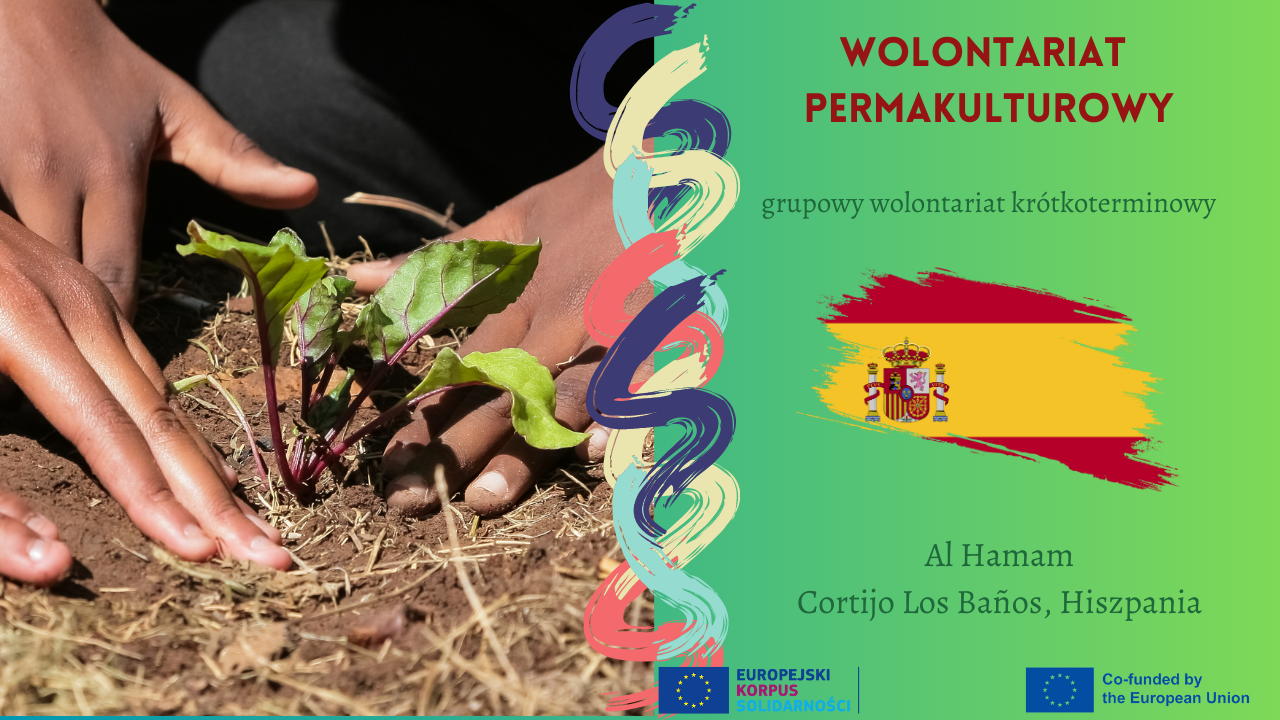Wolontariat grupowy krótkoterminowy o tematyce ochrony środowiska „Life, Land and Water (ViTA)” jest wspólnym projektem naszej fundacji i hiszpańskiej organizacji młodzieżowej Al Hamam Association.
Projekt jest finansowany ze środków Komisji Europejskiej w ramach Programu Europejskiego Korpusu Solidarności.
Zachęcamy do udziału w nim osoby, które nie boją się pracy fizycznej, jest im bliska ekologia i dobro środowiska naturalnego, jak również idealnie odnajdują się w międzynarodowej grupie.
Gdzie? – Cortijo Los Baños, Hiszpania
W jakiej organizacji będę wolontariuszem? – Al Hamam Association
Ile będzie trwał projekt? – 03/09 – 23/09/2024
Ilu nas będzie? – 6 wolontariuszy z Polski (projekt ma charakter volunteering teams)
WAŻNE! Na projekt volunteering teams mogą pojechać również osoby które zrealizowały swój projekt indywidualny długoterminowy.
Do kiedy prowadzony jest nabór? – 28 lipca br.
JAK ZAAPLIKOWAĆ? – Wyślij na adres ewa.skowronska@frsp.eu swoje CV oraz list motywacyjny w języku angielskim. Tytuł wiadomości: „ViTA”
Dodatkowo musisz uzupełnić ten FORMULARZ
Kilka słów o organizacji goszczącej
The Al Hamam Association develops three action programs: the Aruna Program, to disseminate techniques for the evolution of consciousness and spirituality; the Seeds of Life Program, to support natural upbringing, and schools of alternative pedagogy; and the Tribu del Sol Program, to explore tools for personal growth in groups, and harmoniously integrate the social, economic, and environmental elements in this place. Here group life is a continuous learning, a place where we seek, experience and share new ways of living and living together working together. Internal growth and commitment to the environment make us walk together to achieve our goals, each finding its true identity.
Zadania wolonatriuszy
The project activities will be carried out in the municipality of Lucainena de las Torres (Almeria), and will focus on five areas:
a) Environment Area: within this area are the Rural Cultural Heritage tasks, linked to the creation, improvement and conservation of walls using the dry stone technique and irrigation ditches. Agro-ecology tasks will involve the care of vegetable gardens, trees and animals. They will also create fertilisers such as compost, bokashi, phytofortifying slurry and biofertilisers, as well as slurry to prevent and treat pests and diseases, and will apply natural extracts (phytosanitary products).
b) Sustainable Living Area: food processing and manufacturing: cooking and recycling food; drying herbs, fruits and vegetables; making bread, jams and various preserves (depending
on the time of year). Waste management (e.g. recycling used oil to make soap). Maintain cleanliness and order with biodegradable products. Emotional management activities, body and consciousness activities (yoga, meditation…) and cohesion and celebration dynamics, as well as workshops on Conscious Eating and Natural Cosmetics. In addition sports
activities such as hiking are offered.
c) Communication Area: This will be developed through daily organisational meetings, weekly meetings of residents and coordinators, and personal tutorials of volunteers with tutors, and in case of need, external mediation and/or facilitation. Liaison with other local, national and international organisations. Dissemination activities, spaces to document and manage information internally and externally. Collective tutorials to reflect on learning and organise dissemination and visibility activities (RRSS, weblog, conferences…).
d) Learning Area: This area will be developed mainly in the days programmed for training through study circles, with talks and various workshops, to focus on the theory necessary to develop the tasks of Rural Cultural Heritage, Agroecology and Sustainable Living.
Profil wolonatriusza
The project is open to the participation of all young people, without discrimination. We would like to make the greatest possible positive impact on their lives, and select young people who will someday be able to expand that positive impact on the lives of others as well. Participants will be selected for this project on the basis of their CV, questionnaire and motivation letter, followed by Skype interviews to confirm their attitude and commitment towards the stated objectives, the ability to live in a rural environment, as well as the likelihood of being able to share the home and work with others for an intense period of time. The final selection will be carried out by the coordinating team, with the support organizations carrying out a pre-selection. A basic knowledge of Spanish and the desire to acquire fluency in the language will be valuable. An understanding of biology and ecology, a desire to work the land, as well as some previous experience in sustainability and reforestation projects will also be valued as positive, although it is not essential for participation.
Informacje organizacyjne
- WORKING HOURS – Volunteers commit themselves to 20 hours of work and another 6 hours dedicated to training (including process documentation and language improvement) on a weekly basis.
- FOOD – The volunteers will attend the community lunch, and they can cook their breakfasts and dinners alone in the community kitchen. The diet is ovo-lacto-vegetarian, mainly local and seasonal.
- ACCOMMODATION – The accommodation is a shared room with bathroom and living room included, there is a common space for residents with butane kitchen, and dining room with fireplace, and a yurt serves as a multiactivity room.
- POCKET MONEY – 6 EUR/day
- TRAVEL COSTS – 360 EUR
- DAYS OFF – 2 days/month
Zobacz też inne nasze nabory!

